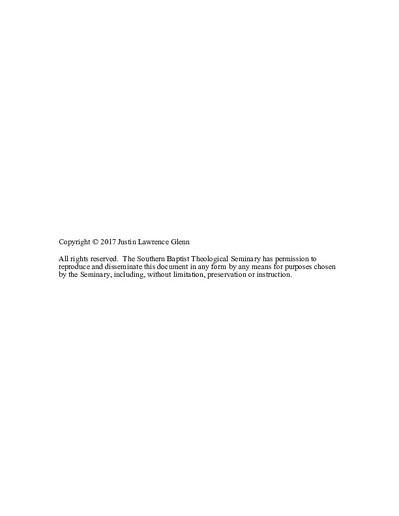The Educational Philosophy of Clement of Alexandria in the Stromata
Subject
Clement, of Alexandria, Saint, approximately 150-approximately 215. StromataChristian education--Philosophy
Abstract
Clement of Alexandria played an important role in the development of Christian educational philosophy in a non-Christian culture in the second-century Roman Empire. Born into a pagan society and educated in Greek philosophy prior to his conversion, Clement sought to explain the orthodox Christian relationship between philosophy and theology and that the two are not enemies. His longest and perhaps most significant work, the Stromata, is a collection of the material that he taught to his students. As an educational record, it also provides two primary mechanisms for understanding some principles of his educational philosophy. First, his use of the term “Gnostic” (primarily γνωστικός, but also γνώμη) is unique and shows that he understands education to be crucial to, and even necessary for, Christian growth and development. Clement’s Gnostic figure is not just his ideal Christian, but of his understanding of what an ideally educated Christian would look like. Second, his use of γνῶσις and πίστις, and their relationship to each other throughout the Stromata provide further clues about his understanding of the relationship between education and discipleship. Clement argued for a complementary relationship between the two whereby faith is the ground of true knowledge and knowledge is the protector and aid to faith. Deduced from these elements in the Stromata, seven overarching principles of Clement’s philosophy of education are presented.

